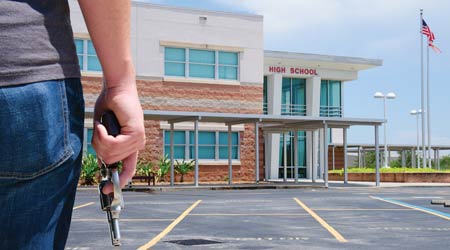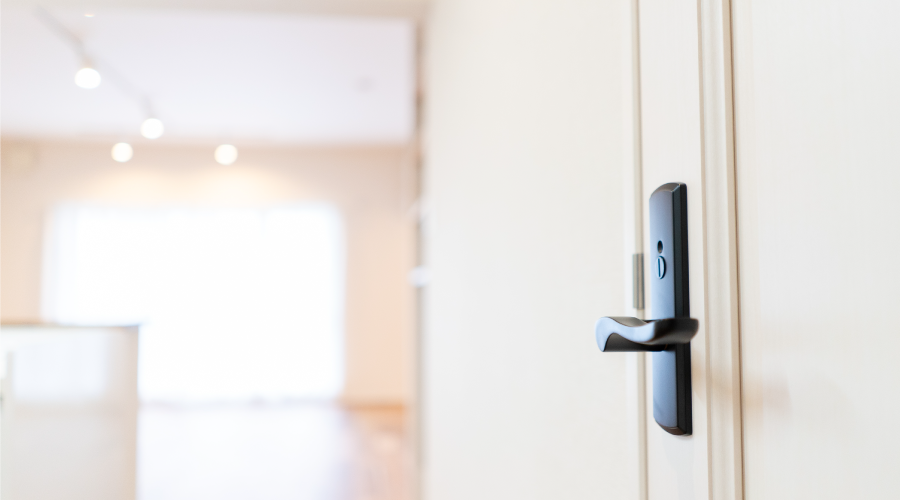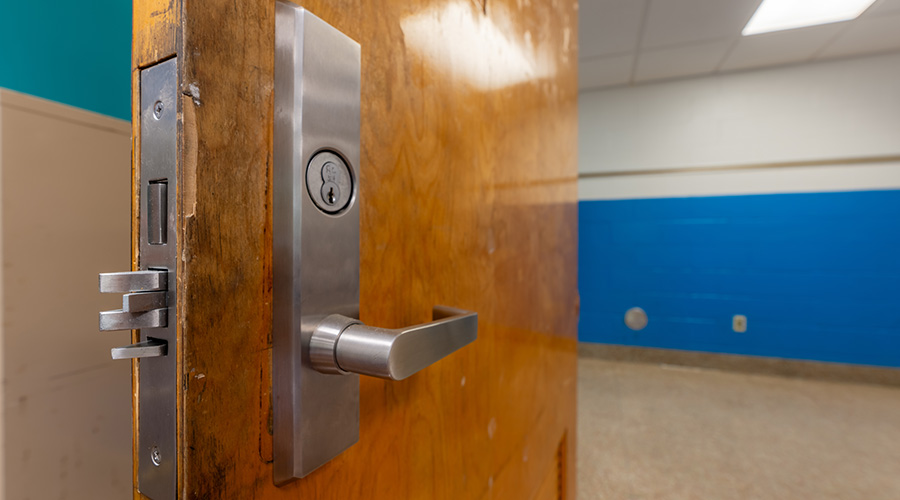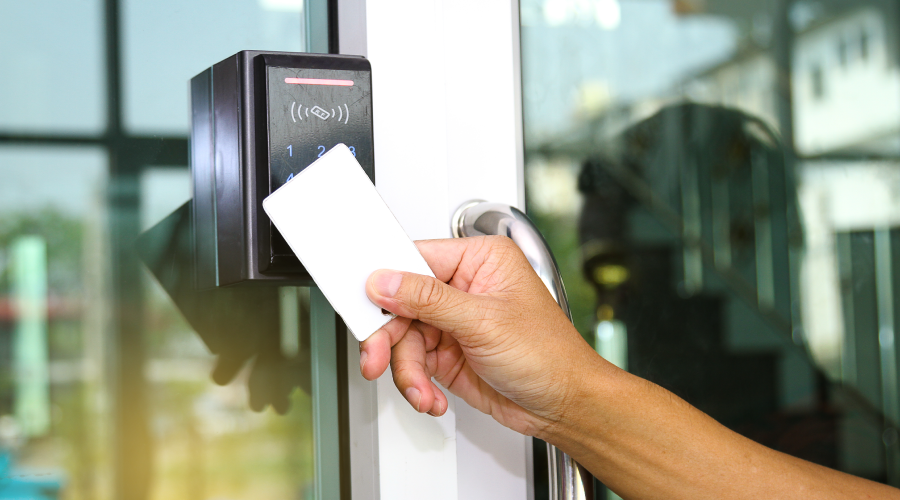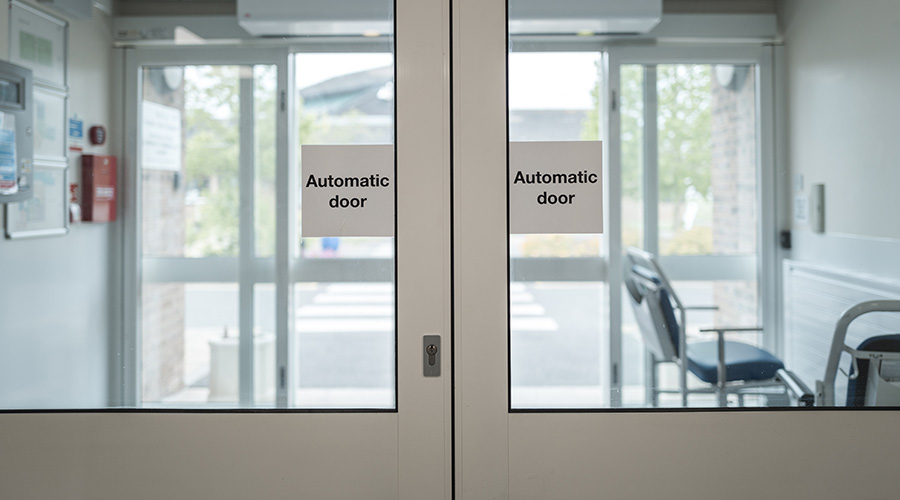Active Shooters: The Role of Door Hardware
Careful planning and follow-through ensure locks, handles, hinges and operators protect occupants and help achieve security goals
Active shooters were nearly unheard of as a threat to facilities at one time, but that time has passed. Now, maintenance and engineering managers, especially those in education facilities, need to prepare for such situations.
One key component of any facility’s security and access control plans against unwanted intruders is door hardware — including locks, handles, hinges and operators — that delivers durability and reliability. By taking security into consideration during specification, installation, inspection and testing, managers can ensure hardware integrates effectively with access control systems and delivers the desired security.
Specification and installation
Robust entry door locks and accessories, such as latch guard plate covers, are a key consideration during door lock specification, especially for facilities such as schools that depend on delayed entry to protect occupants against active shooters. With large numbers of defenseless occupants concentrated closely together, a shooter is close to occupants after achieving entry. This situation makes first responders’ challenge more difficult because of the potential for innocents being in the line of fire or used as hostages.
Every minute of delayed entry gives first responders more time to do their jobs, and it gives occupants a greater chance to survive unharmed. Actual experience shows that even though attempted forced entry with a crowbar inserted between the door and jamb caused a half dozen deep gouges in the metal, forced entry was still prevented.
If perpetrators are not successful in the first few minutes of their attempts to gain entry, they often are caught in the act, or they become discouraged and leave. So key considerations for managers to address during specification and installation are unauthorized entry prevention and ease of egress in an emergency.
Related Topics:








